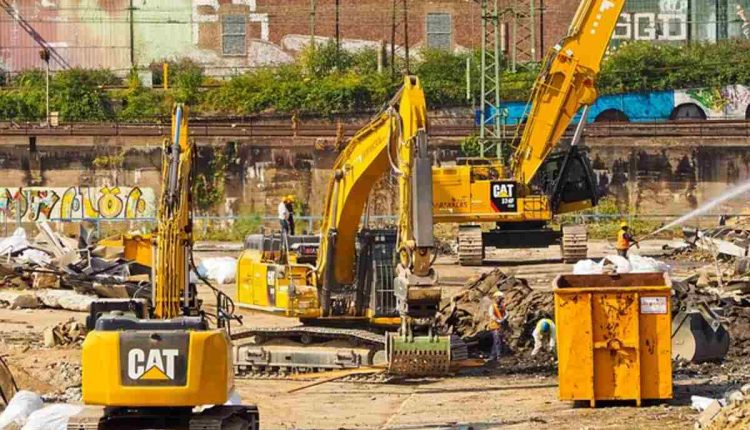Demolition contractors specialize in demolishing buildings and structures using either manual demolition tools such as hammers and crowbars or mechanical equipment such as excavators, crushers, HIAB trucks, and cranes. The best guide to finding Main Street Demolition San Francisco.
Some demolition contractors specialize in cleaning up brownfield sites (also called polluted sites), which require special handling and disposal of hazardous materials like asbestos. This work needs specific licenses and training.
Safety
Demolition projects often combine large machines with on-ground workers, creating an increased risk of danger. To mitigate this, clear plans and rules must be put in place prior to beginning demolition work, with risk assessments and method statements used to ensure no operative is ever at risk of being struck by moving machinery.
All personnel should be familiar with OSHA regulations, and all demolition workers should wear appropriate PPE, such as hard hats, safety goggles, and ear protection. Workers should also be provided training on any heavy machinery they will be operating during demolition operations.
Before beginning demolition, all service lines (electrical, gas, steam, and sewer) should be disabled or shut off to prevent them from being cut by demolition equipment.
Before beginning demolition, a final sweep should be conducted to ensure nothing that shouldn’t remain inside remains inside. A safe site compound and welfare facilities should also be created so operatives may take breaks away from the operational area of the demolition site.
Insurance
Insurance policies can be an essential asset to demolition contractors. Many clients require them to show proof of liability and workers’ compensation insurance before engaging them for projects, while some states also mandate licensing requirements that include proof of such coverage. This ensures contractors follow industry standards while creating trust between clients and themselves.
Depending on the size and scope of your demolition business, you may need to consider various forms of insurance. These policies include Commercial General Liability (CGL) coverage, third-party property damage indemnity coverage, and workers’ compensation insurance policies.
CGL policies provide valuable coverage for demolition contractors. They cover any damages or injuries sustained as a result of their work, such as legal fees and settlements. Furthermore, this insurance also protects equipment used on-site should it become lost or stolen and ensures you can claim for it should this occur.
Third-party property damage coverage can provide demolition contractors with significant protection. It protects them against claims filed by third parties if their injuries or property are damaged as a result of your work. This coverage typically includes legal defense expenses should an incident arise that requires them to defend.
Experience
Demolition work is a complex task that requires special tools and equipment. Professional demolition contractors have years of experience and can complete this work much more quickly than homeowners. Furthermore, they can handle any unexpected issues during the process, which saves you both money and ensures it gets completed on time.
Before hiring a demolition contractor, it’s essential to review their previous projects and reputation. Ask for customer references or testimonials so you can judge their quality of work and customer service, as well as whether or not they provide performance bonds for their demolition jobs.
Are You Thinking About Becoming a Demolition Contractor? Becoming one will require strong critical thinking and the ability to communicate your plans effectively on construction sites where deadlines may be tight. Furthermore, the physical requirements of demolition work, such as heavy lifting, must also be satisfied satisfactorily.
As part of your preparation for demolition work, you must also possess an in-depth knowledge of construction and building codes. This will enable you to quickly recognize any structural issues and develop a plan for how best to safely dismantle structures. In addition, possessing a valid license and insurance certificate are prerequisites to ensure you’re qualified to undertake demolition operations.
Licensing
Assembling a demolition company is no easy feat. Companies typically need to undergo an intensive background check, receive a business license, and carry both public liability and workers’ compensation insurance before starting work on any given demolition project. Furthermore, contractors are expected to follow strict safety protocols while on-site.
Operating a demolition crew requires hiring construction laborers. Depending on the nature and extent of your demolition job and any special considerations, like asbestos removal, additional team members with specific expertise may also be required.
In addition to crew members, demolition contractors typically need heavy equipment and trucks to haul away debris and waste from demolition projects. Many items must be transported to designated waste management sites. Demolition contractors are trained in how to safely handle different forms of debris generated during a demolition job and ensure the site is completely cleaned before starting new construction.
Based on your location and the circumstances surrounding your demolition work, you may also need to complete DOB Form 402 (Excavation Certification). If the work involves private property, contractors must show evidence they sent all required excavation notices and submit a contract covering all demolition activities on that property.


